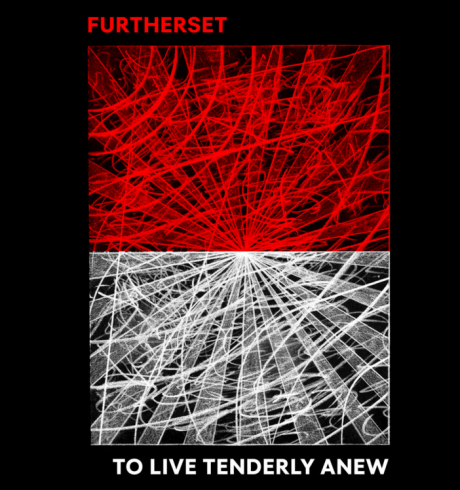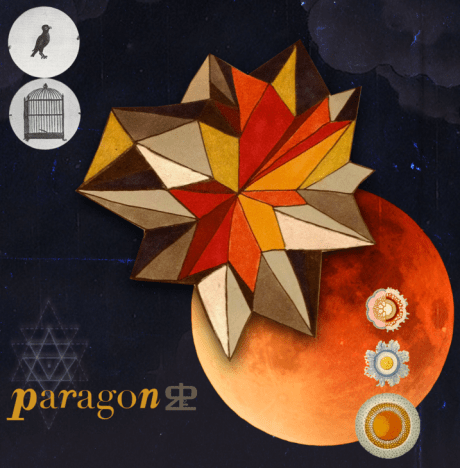Tickling Our Fancy 095: Hooshayer Khayam/Bamdad Afshar, The Psychotic Monks, Geeker-Natsumi, Alex Stolze…
November 24, 2020
Dominic Valvona’s Reviews Collection

Everything’s in a right old mess despite the news of a magic vaccine. We can only hope that things can return to some sort of normality next year; though this would be the chance to rethink a lot of things, including the work/life balance, the state of the national health service etc. During this whole time, and despite the horrendous effects of coronavirus and the lockdowns on the creative sector and arts, great music continues to be made. Next month’s choice albums articles will testify to that. Yes, in many ways a lot of the music we are hearing now in 2020 was made last year, or at the start of this one, but many have tried to record and produce fine work in the most constricted circumstances during this whole rotten period.
Before we hurtle into those end of year pieces, I’m going to furnish you all with another selection of new releases.
Launching an all-female led new label venture, Dream Society Records, the regular Monolith Cocktail featured dream weaver Bloom de Wilde selects a compilation of musical mavericks and outsiders making curious and beautiful music for a new compilation; Neil Debnam’s Japanese-based label Kirigirisu Recordings moves into the tape business with two very different releases, Geeker-Natsumi electro pop kooky Heloctoro and the avant-garde Lorenzo Gomez Oviedo Bardo Todol’s Tu Cara Estrada Por El Extasis; The Psychotic Monks provide an ambitious frisson of space rock, doom, garage and punk on their epic second album ‘Private Meaning First’; Chamber pop and electronica star Alex Stolze returns with another classically bent album of bowed plaintive strings and sophisticated synthesized beats, Kinship Stories. Also, Italian producer Furtherset finds spatial cosmic emotional pulls and cerebral swells from the most caustic of dissonance and loops on his new album To Live Tenderly Anew, and the pairing of Iranian contemporary artists Hooshayer Khayam and Bamdad Afshar give us their take on the atavistic Gwati healing music of Southern Iran, with the inaugural release for the new Iranian music label 30M Records.
Hooshayer Khayam/Bamdad Afshar ‘RAAZ’
(30M Records) 20th November 2020
With the US election results certainly likely, despite the pending court cases and odd uncounted ballot box, to see Biden take the helm in 2021 there could be, yet, another change in policy towards Iran in the pipeline. It will of course remain to be seen if the Democrat administration will lift the current crippling sanctions, or if the nuclear deal that Trump withdrew in 2018 will once more be renegotiated (maybe even reversed), but at present Iran is suffering the double whammy of pariah state boycott and the devastating effects of Coronavirus.
Pity the poor musician in all this turmoil, especially when they’re cut off from international audiences, unable to travel and spread the goodwill. Pre-lockdown, and pre-Trump’s momentous decision to reverse that controversial nuclear deal, Iranian cultural and historical enthusiast and old German music industry hand Matthias Koch was organizing various international performances in the country for artists as diverse as the German composer Martin Kohlstedt and the Icelandic multi-instrumentalist Olafur Arnolds. That all came to a swift end in the summer of 2018, as trade barriers were erected and flight bans were brought in. The results of which made it near impossible for Iranian artists to gig abroad or release music; the costs alone skyrocketed. Koch however has decided to set up the beneficial 30M record label: a platform that will not only release Iranian music but provide networks and help with negotiating more favorable contracts for its artists. Based in Hamburg, the 30M label is imbued by that very Iranian culture, its title a shorthand form of the Persian “Simorgh”, the “si” of which is “30” in Farsi, the “morgh” part a famous mythical bird. The roster itself, a rich upcoming selection of provincial Persian music and modern treatments, promises a window in on the few remaining artists and keepers of the form. The first release of which is from the transformative pairing of pianist/composer Hooshyar Khayam and electronic composer Bamdad Afshar, who work their magic on the atavistic healing music known as “Gwati”, from the southern Baluchistan region of Iran.
A region, culture shaped by the various crosswinds that blow, almost unceasingly, across its landscape, the Baluchistan traditions have been hewn from an arid desert and mountainous cartography. It’s the central part to be exact of this the second largest province in all of Iran that informs Afshar and Khayam’s experiment of infused Persian folk and spiritual music. In the Baluchi language Gwati translates as “wind”, and is used to temper the harsh prevailing breezes. So important are these winds there’s a whole lexicon of descriptive words for them. One such wind is for obvious reasons the 120-day wind cycle that lasts from May until September. Mystics and purveyors of the musical form believe these winds are responsible for all manner of torments and mental ills, and so to placate these effects, to drive them away, they perform an ecstatic ceremony of music and dance. This is the music that now informs the basis, foundations of this first release on the 30M Records label.
With a background in augmenting and in experimenting with the neoclassical genre, both Afsher and Khayam take the source material on a near avant-garde exploration of the esoteric and mysterious. Their new collaboration RAAZ, which means “secret” in Farsi, is just that, a secretive sonic world of obscured Baluchi tones and modal structures, edged into a contemporary magical mirage. A both synthesized and classical set-up of piano and strings merge with a translucent trio of Gwati voices and instruments.
Spindled, fanned and brassy resonating timbres chime and evoke a very old, spiritual legacy that spans the Baluchi people’s homeland and greater diaspora. And so at times you could be whisked away to a horn-blowing wail of ancient trumpeted Afghanistan mysticism or, the courtly and banqueting dances of India; two geographical evocations from the opening Babylonian ‘Yə’ k’. Enchantments follow on a soundtrack panorama that subtly affects a yearning array of soulfully earthy vocals with wobbled glitches and resonance, and adds warped, fizzing, propulsive electronic beats to bobbing tablas and bird-like quivering, waning and rubbed instrumentation.
At times the production really pushes into the strung-out and experimental, especially on tracks such as the padded fretboard patting and plucking supernatural ‘Dow’. But coming full circle, ending with some of that infamous wind, the finale ‘Noh’ uses a cut-up ringtone, staccato rhythms and the enticing song of a female siren to create a most dreamy aura.
Healing infected souls in its original form, this contemporary elevation of that tradition is certainly providing a refreshing musical dialogue. This inaugural release fulfills the criteria in introducing a contemporary audience to an obscured and lost Iranian heritage, whilst creating a classy new and immersive fusion. Despite the political turmoil it seems this blossoming label venture is at least brightening sonic horizons.
See also…
Mehdi Rostami & Adib Rostami ‘Melodic Circles: Urban Classical Music From Iran’ (Here…)
Liraz ‘Zan’ (Here…)
The Psychotic Monks ‘Private Meaning First’
(Fat Cat Records) 27th November 2020

A palpable tumult of tension threatens to explode and speed into hyperspace on the second grand opus from France’s The Psychotic Monks. Crammed, we’re told, into claustrophobic isolation, cut off in the French countryside from outside influences, the plaintive and seething band’s concentration has been focused on delivering a most ambitious, progressive, noisy, tormented and caustic friction that’s both dramatic and distressing.
Inner thoughts and romanticisms are propelled into an often-cosmic velocity driven void of fuzzed and frazzled stoner rock, industrial grinding metalwork, Faust and Birth Control style Krautrock, post-punk and sludgy dreading doom.
Surely inspired by those legendary infamous doyens of everything from spasmodic garage to psychedelia, The Monks, these Psychotic apostles seem just as radical in crossing musical streams; from the haunted slumbered, almost grunge-y opener ‘Pale Dream’ to the scuzzed Lydon fronting Sonic Youth accelerated thrashing and vocally increasingly syllable strung-out ‘A Coherent Appearance’. A gristly avalanche of overwhelmed emotion, ‘Isolation’ bruises through Sabbath, Black Angels, Slift, Spacehawks, Swans and NIN.
Yet despite the galvanized tolls, heavy dissonance and menacing augurs, the Private Meaning First is an expansive album of shade and light: for every doom-ringing crescendo and thump from the bowls of the void there’s a moment of downcast but controlled melody and pining. Something that approaches an ethereal like chorus quality on the Moonshake-esque and hallucinogenic loosened ‘Emotional Disease’. Which means you’re just as likely to hear a trudge across brooding, funneled ominous wastelands as you are to be catapulted into a chasm of wrenching, tormented longing.
Tracks build up a momentum that really soars and burns on the album’s fifteen-minute closer, ‘Every Sight’. In old money what used to be nearly the entire side of a vinyl LP, this colossal of a aching Gothic passion begins with incipient stirrings and a gasp at direction, before a battered guitar and choral shadow takes over. It ends on a crashing noisy finale of caustic discordant smash-ups and ferocity.
A dense anguish of strife and squalling suffocation, The Psychotic Monks’ second album is an epic collision of punk, doom and space rock that (by design or luck) seems perfect for the annus horribilis that is 2020. It is an album of anger, anxiety and mental distress amplified to shake the foundations.
Alex Stolze ‘Kinship Stories’
(Nonostar Records) 4th December 2020

In what seems (to a point) like a return to the finely balanced neoclassical and chamber electronica of 2016’s Mankind Animal, violinist maestro, composer, artist, producer, label boss and creative community steward Alex Stolze once more blends a swell and bowed plaint of strings with sophisticated synthesized beats and ripples of effects on his latest album suite, Kinship Stoires.
Still an open borders and open minded kind of a guy, Stolze both weeps for and sensitively evangelizes a more tolerant acceptance of migrants coming to European shores. The former German star of the highly popular Bodi Bill group is all too personally aware of the sinister creeping poison and hate that continues to besiege his own Jewish heritage: both on the far right and far left. Despite everything history has taught us, and the atavistic persecution of that faith and the nation state of Israel, intolerances and violence towards Jews remains a constant presence in Europe. Comparisons are made between the volatile uncertainties of our own contemporary age and the political aftershocks of the 1929 crash on this new album’s striking elegiac augur ‘Babylon’, which features Stolze’s foil Ben Osborn on ‘liberato’ hymnal lamenting duties. The poet, sound designer and artist Osborn shares a similar Eastern-European Jewish background with Stolze: the roots both musically and tragically driving this Weimer collapsing, Tarot card imaginary wasteland-without-a-vision and foreboding Cohen requiem. A pivotal year, just like 2020, the year of the great stock market crash helped fuel resentment and anger, leading to the aggrandizement of fascism as huge swathes of the population in Germany rejected the institutions. So many parallels can be drawn from not only ‘Babylon’, but also much of the album, which consists of both songs and shorter instrumental passages, mini soundtracks.
Leading from the front, Stolze equates that catastrophic prejudice with the ongoing crisis of both refuges and economic migrants piling into Europe. Leaving Berlin a decade ago for the relatively isolated abandoned wilds and forgotten borderlands of what was East Germany, Stolze, his family and friends have built a new creative hub from scratch. A welcoming homestead that houses a studio, art spaces and workshops it is open to all; playing host to an international set of collaborators and unsurprisingly working to affect a change in attitudes. In between stirring evocated classical pieces on Berlin landmarks and Biblical desert lands, there is a collaboration with the West African vocalists Marlaye and King Ali on the modern R&B pop and toasting migrants burden, ‘Rucksack’. The travails of those unfortunate souls is palpable; especially on the bobbing motioned, pining Depeche Mode-esque ‘Orphan’ and the electronic pop undulated, soulfully mourning ocean baptism ‘The Way We Care’.
Sad yet beautifully communal and full of subtle pop melodies, the pizzicato and bowing exquisite violins, resonating, bass-y piano notes work well with the purposeful synth twitches, tweaks, tight delay settings and ghostly shimmers; producing an album with feet both in the past and present sonically. The introductory opener, ‘German Desert’ (the third such reference to those arid landscapes, both geographically and metaphorically) for instance combines Bach reminisces with ripples and a suffusion of arpeggiator electronics and atmospheres: A meeting between Rick Van der Linden and Wendy Carlos.
Yet amongst the fragility, disunity and plaintive charges Stolze has much room for declarations of love; pleading his case for a love that’s never ending on the rim stick drummed, golden-rayed paean ‘Manic Magician’. Once more composing contemporary sonnets to a mix of Eastern-European classical music, buoyant modern pop R&B and electronic pop, Stolze caresses the prevailing dark tides of dissonance to offer sympathy and a caring open hand of friendship. Kinship Stories is a safe musical harbour in the political storm. A complicated picture, we can probably all agree that voices like Stolze’s are most welcome in finding common ground with a remedy to solving the pains and intolerances of an ever-divisive society.
Furtherset ‘To Live Tenderly Anew’
(-Ous) 11th December 2020

Managing to draw an emotional pull and sense of awe from a dense mass of transformed rasping, caustic pulsations and fizzles Italian producer Furtherset finds a rhythm and synergy from his electronic apparatus on the romanticized imbued suite, To Live Tenderly Anew.
Taking its title from the tragic experimental Italian poet Amelia Rosseli’s 1956 poem ‘Diairo in tre Lingue’, this concluding chapter to a sonic triptych of releases for the –Ous label is an expansive evocative work of six movements; each one driven by the producer’s prize of finding, exploring the “hidden connections beyond harmonies and rhythm”. This is achieved in some ways by pushing repetitive incipient sonics until they reveal a melody of a sort and something almost cosmic sounding. Poetically inspired by the words of the trilingual Rosseli (daughter of the assassinated liberal socialist activist Carlo Rosseli) Furtherset’s static fuzzes and centrifugal rotating soundbed of tensions, thrusts and noise expand into the heavenly and beyond. In even the most discordant and cause of harsh, razor churns the journey can’t help but find either a sense of questioning enormity, beauty and even optimism.
Transmogrified rave-y techno elements are cast towards the majesty of a space cathedral, whilst metallic tubular chops are worked into space walking hymns.
It almost even sounds classical in places, and like a combination of Tomat and Nonpareil in others. You can read various augurs, quandaries and emotion states in these building, thrashing, spilling noise symphonies that manage to turn the limits of dissonant electronica into something dreamily cerebral and expansive.
Various ‘Paragon’
(Dream Society Records) 20th November 2020

Providing a home for an eclectic array of daydreamers, malcontents and adventurers alike, the blissful artist/producer Bloom de Wilde and Damiët Philippona have set up a new label venture, the Dream Society Records. They’ve even roped in the Monolith Cocktail’s very own no fi cult miserablist Brian ‘Bordello’ Shea, who furnishes the enterprise’s inaugural compilation sampler with his vague notional homage to the founder, ‘Bloom of de Wilde’. Riffing on a pun (which our Brain has a knack for) he immortalizes the Dutch artist in his sincere, bedraggled, beaten romantic courtship – imagine if the TV Personalities’ Dan Treacy or Daniel Johnston had been brought up on 70s Top of the Pops, Bagpuss and Gene Vincent in England’s Northeast. It seems a befitting place for the St. Helens troubadour, who shares billing with Bloom herself and a handpicked selection of curious finds.
Launching one of the very few female orchestrated and led record labels, with a soft remit to share undiscovered gems that make the world a more beautiful and harmonious place, Paragon is both a kind of sampler preview of future releases and a statement of intent.
No stranger to the MC, the prolific Bloom has featured many times with her spellbinding, idiosyncratic experimental pop songs. Like a lulled Sugarcubes mixed with a twist of trip-hop, Mother Nature’s daughter features twice on this compilation; bookending the collection with the twinkled and blessed, almost jazzy voiced, flowered ‘Flying Carpenters’, and in a double-Dutch duet with the odd folksy troubadour Timo de la Mar on the dreamy, earnest ‘Sparkle’. Bloom’s vocals blend a sort of childlike curiosity with a deeper organically untethered richness that aches and also soars.
Sticking to relatively guitar-based music with a little touch of synthesizer, Absolute State furnish the collection with a neu-pop soul longing of Black, David Slyvian and Mark Hollis on the plaint string swelled ‘Fool’, whilst Constance offer a courtship dance of doo wop pop on ‘You Can’t Handle This’.
In the, almost total, fields of electronic experimentation there’s oddities from the Homosampaliens & Toxic Chicken pairing in the shape of the Southeast Asian vaporous space music glitched ‘Milk’ – a strange hallucination of virtual Tokyo billboards, gamelan and The Orb -; a 8-bit crush Aphex Twin vision of Street Fighter by The Snoppjes called ‘Polipo’; and a bubbling brook of shredded reversals and Techno by 4Fists entitled ‘Sweat & Bray’. An imaginative curiosity, unburdened by theme, location and genre, this showcase debut from the label is as ridiculous as it is sublime. It bodes well for the future, pointing the way to a beautiful relationship between a largely unconnected network of musical mavericks and outsiders.
Geeker-Natsumi ‘Heloctoro’
Lorenzo Gomez Oviedo Bardo Todol ‘Tu Cara Estrada Por El Extasis’
(Kirigirisu Recordings)

Entering the cassette business for the first time, Neil Debnam’s (of Flying Kites and Broken Shoulder post-rock and beyond fame) Tokyo-based label releases a couplet of strikingly different albums from artists working at polar opposites. Previously providers of obscure music limited to very small runs on CDR, Debnam extends the Kirigirisu’s label’s range of formats for two extraordinary experiences from Japan and Argentina.
The first of these is a dizzy electro-pop vision of kooky video game sonics and candy stick bamboo music – imagine Shintaro Sakamoto meets Grimes – from the lo fi tech Geeker-Natsumi (pronounced we are assured as “Gay-Car-Na-Too-Me”). Celebrating quitting her previous job (whatever that was) a few years back with the debut leap, Relative To Refire, Geeker’s second collection of odd pop and bitcrush electronica shunts together “Hero” and “Electro” to create a hyperbolic album title. Using a mix of Casiotone portable keyboard, looped drums, Garageband and the in-built mic on a Macbook she centers a musical avant-garde bubble of R&B for Mario Cart, spirited platform leaping Rainbow Islands electro, static shooting futurism and pop princess siren wooing. It’s actually quite something; a kind of knowing cuteness of out-there J-Pop reshaped by a merger of Cuushe and Bix Medard; with themes as ridiculous and convoluted as ‘Mexico Salamanders’, a weird rattily techy crème-puff looping electro track about the Meican neotonic walking fish that reaches adulthood without undergoing metamorphous (thanks Wiki), Make what you will of that.
To be honest it defies even my skills as a critic in explaining its charms (of which there are many), or, what you can expect from the brilliantly kooky songbook of electronic-pop exploration. But it has really grown on me, and deserves attention for some of its infectious weirdness and fun – the walking salamander (a live favourite we’re assured) being a particular good ’un.

In another part of the world, the avant-garde pairing of Cordoba artists Pablo Pico and Lorenzo Gomez Oviedo compliment each other’s mysterious evocations (and invocations) on the highly explorative Tu Cara Estrada Por El Extasis quartet of peregrinations and soundtrack imaginations. Both born (almost) in the same place, and following similar musical pathways, the two Argentine composers/artists had never met or crossed paths before the fated December of 2017. Finding, as it seems, common ground they went into a sort of “recording camp” the following February; creating the foundations of this shared mystical work. Said to “evoke” expressive passages of Friedrich Hölderlin, the famous German poet-philosopher responsible for much of that Germanic romanticized idealism, the serial sounds, stirrings and heightened bowing weeps of violin describe a more supernatural, otherworldly immersion of séances; the reverberations of children-at-play; and traces of conversations and sonic illusions.
Oviedo on his part exudes forbade and mystery with his particular passages of transformed gamelan, neo-classical spine tingling, stabbed piano and Morse code strained cries. The title track itself, attributed to Oviedo, messes with tape recorded poetics and longing airy strings to produce a haunting recital.
His partner on this strange concentration of the cerebral and daunting is just as mysterious: if not more mystical sounding. Synthesized throbs and vibrating bass permeate the constant twinkling cascaded trinket percussive fantasy of Popol Vuh and early Amon Düül II eastern occultism found on ‘Susurran También Las Corrientas’. And Pablo looks Inside The Dream Factory as he invokes a mourning tone of magik on the ringing, churning ‘Voluntarj Amente Venicido Ante Las Estrelles’.
A remarkable transference, with each artist dedicating their surreal passages to the other, it seems for the most part an expression of freely flowing descriptive sonic surrealism; a reification of memories, thoughts and inspirations directed towards an evocative immersive mirage.
It would be difficult to find two such different diverse experiments released on the same day by one label, but that’s Debnam’s imprint for you. Well worth the punt if you’re looking to expand horizons, or just enjoy some challenging music, whether it be Japanese electro pop or magically haunting avant-garde music from Argentina. Be quick though as there’s only a very small run of tapes for both.
Hi, my name is Dominic Valvona and I’m the Founder of the music/culture blog monolithcocktail.com For the last ten years I’ve featured and supported music, musicians and labels we love across genres from around the world that we think you’ll want to know about. No content on the site is paid for or sponsored and we only feature artists we have genuine respect for /love. If you enjoy our reviews (and we often write long, thoughtful ones), found a new artist you admire or if we have featured you or artists you represent and would like to buy us a coffee at https://ko-fi.com/monolithcocktail to say cheers for spreading the word, then that would be much appreciated.